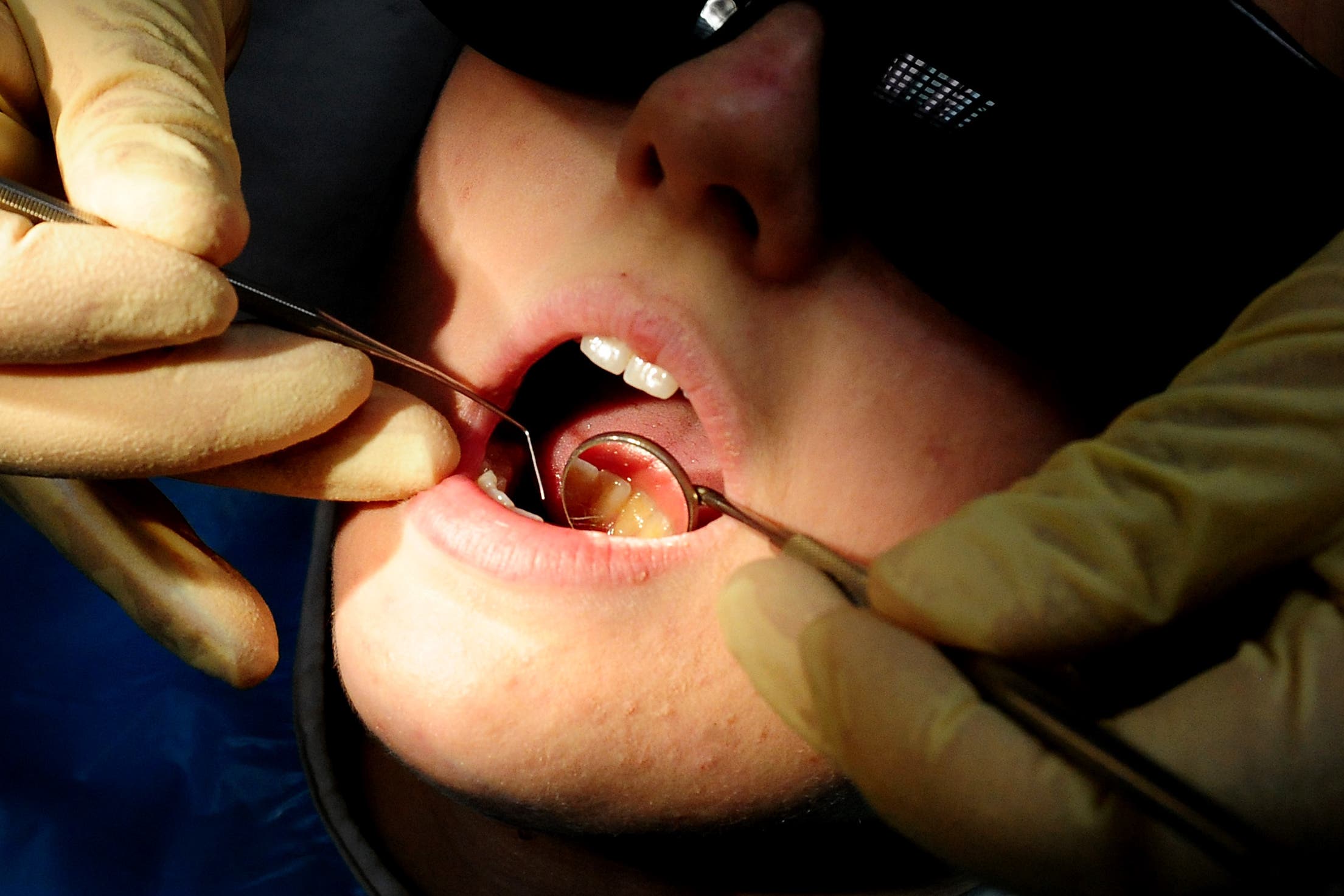Water fluoridation ‘offers only modest benefit to dental health of children’
Nevertheless scientists said fluoridation should be considered alongside other measures to protect children’s dental health.

Your support helps us to tell the story
From reproductive rights to climate change to Big Tech, The Independent is on the ground when the story is developing. Whether it's investigating the financials of Elon Musk's pro-Trump PAC or producing our latest documentary, 'The A Word', which shines a light on the American women fighting for reproductive rights, we know how important it is to parse out the facts from the messaging.
At such a critical moment in US history, we need reporters on the ground. Your donation allows us to keep sending journalists to speak to both sides of the story.
The Independent is trusted by Americans across the entire political spectrum. And unlike many other quality news outlets, we choose not to lock Americans out of our reporting and analysis with paywalls. We believe quality journalism should be available to everyone, paid for by those who can afford it.
Your support makes all the difference.Adding fluoride to water supplies offers only a modest benefit to the dental health of children, researchers have found.
The scientists said water fluoridation can be seen as a cost-effective way to help reduce some of the £1.7 billion a year the NHS spends on dental caries.
However, the team found that the benefits of fluoride in water appear to be smaller than previously seen – in studies from half a century ago, when fluoride toothpaste was less widely available in the UK.
Despite their findings, published in the journal Public Health Research, the scientists said fluoridation should be considered alongside other measures to protect children’s dental health, particularly those from disadvantaged groups who are more likely to experience tooth decay.
Dr Michaela Goodwin, from the University of Manchester and senior investigator on the project, said: “While water fluoridation is likely to be cost-effective and has demonstrated an improvement in oral health, it should be carefully considered along with other options, particularly as the disease becomes concentrated in particular groups.”
Nearly 3,000 children in Cumbria were followed over a six-year period as part of the Catfish study, funded by the National Institute for Health and Care Research.
Decayed teeth are painful and can impact on sleep patterns, learning, attention, and many aspects of general health
The children were divided into two cohorts across two locations – one in West Cumbria, where water fluoridation was reintroduced in 2013, and the other in the rest of Cumbria, where water does not contain fluoride.
In West Cumbria, the younger cohort were born after water fluoridation was introduced, which meant they had the full effect of the measure.
The older cohort was aged around five when fluoride was reintroduced into the water supply, which meant they mainly received the benefit for those teeth already in the mouth.
Along with dental examinations, the researchers also collected information about the children in the blinded study.
The results showed that, in the younger cohort, 17.4% of the children in fluoridated areas had decayed, filled or missing milk teeth, compared with 21.4% for children in the same age group in non-fluoridated areas – revealing a modest four-percentage point reduction in the incidence of caries.
Meanwhile, in the older cohort, 19.1% of the children in fluoridated areas had decayed, filled or missing permanent teeth, compared with 21.9% for children in non-fluoridated areas.
While tooth decay in children has fallen significantly over the last 50 years, recent data revealed around that one in four (23%) five-year-olds in 2019 has had dental decay.
Dr Goodwin said: “Tooth decay is a non-trivial disease, which is why measures to tackle it are so important.
“The extraction of children’s teeth under general anaesthetic is risky to the child and is the most common reason for children between the ages of five and nine to have a general anaesthetic.
“Decayed teeth are painful and can impact on sleep patterns, learning, attention, and many aspects of general health.
“But more questions remain and we hope to follow up on these children in the long term.”